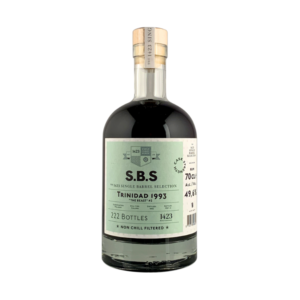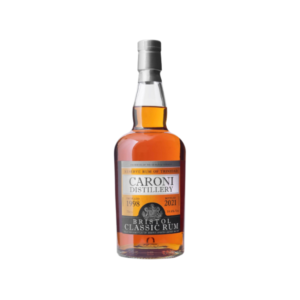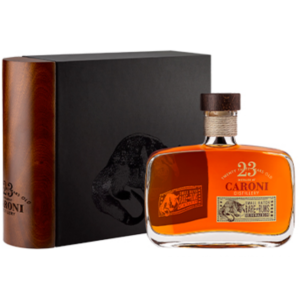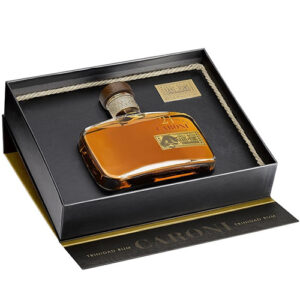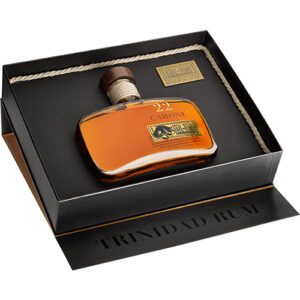Showing all 5 resultsSorted by popularity
Introduction to Caroni
A legendary distillery with a bittersweet legacy
Caroni is a closed Trinidadian rum distillery that has achieved almost mythical status in the spirits world. Located on the Caribbean island of Trinidad, this once-operational industrial distillery has transformed from a government-owned sugar factory into one of the most sought-after and collectible rum producers in history. The distillery’s closure in 2003 has only enhanced its legendary status, creating a finite supply of increasingly rare and valuable liquid.
Why we have a soft spot for Caroni
At Vault of Spirits, we cherish distilleries that leave an indelible mark on the spirits landscape, and Caroni exemplifies this perfectly. What makes Caroni truly special is its unmistakable “dirty” heavy style, characterized by petroleum, tar, and industrial notes that are impossible to replicate. This is rum with attitude and character – a time capsule of a production style that simply no longer exists in today’s rum world.
The History Behind Caroni
Origin and development
Caroni was established in 1918 in the fertile plains of central Trinidad, initially as a sugar factory with distillation capabilities. The distillery was closely linked to Trinidad’s sugar industry, processing the molasses from its own sugar production. After Trinidad gained independence from British rule in 1962, Caroni became state-owned and continued to produce rum as part of the island’s industrial backbone.
For decades, the distillery primarily supplied rum for blending purposes, with much of its output being shipped to the United Kingdom. It wasn’t until much later that Caroni began to be appreciated as a distinctive single distillery rum.
The people behind
While Caroni’s early management history remains somewhat obscure, the last distillery manager, Rudy Moore, has become an important figure in preserving knowledge about Caroni’s production methods. The real hero of the Caroni story, however, is Luca Gargano of Italian company Velier, who discovered hundreds of barrels of aging Caroni rum after the distillery’s closure and brought them to the world’s attention, effectively saving this rum heritage from anonymity.
The Craft and Production
From raw material to finished product
Caroni’s production was deeply rooted in Trinidad’s sugarcane industry, using local molasses as its base. The distillery was known for its combination of column still and pot still distillation, but particularly for its heavy-bodied column still rums. These were produced using a unique combination of high ester counts and the distinct water source from the Caroni River.
What sets Caroni apart was its peculiar fermentation process that created precursors to the tarry, oily, and petroleum-like notes that define the distillery’s signature profile. This was industrial rum-making of a style rarely seen today – robust, characterful, and uncompromising.
Aging and maturation
The tropical aging process in Trinidad imparted intense maturation characteristics to Caroni rum, with the hot, humid climate accelerating the interaction between liquid and wood. After the distillery’s closure, many barrels continued aging in Trinidad, while others were shipped to Europe for continued maturation in cooler climates, creating different expressions of the same distillate.
Most Caroni rums found today have been bottled by independent bottlers, with age statements ranging from 15 to over 25 years, each representing a different facet of this lost distillery’s legacy.
Selected Products from Caroni
Caroni 17 Year Old – An introduction to the house style
These 17-year expressions, often bottled around 55% ABV, provide an excellent entry point into Caroni’s distinctive character. Expect notes of tar, diesel, tropical fruits, and a profound industrial backbone. The balance between the raw power of Caroni’s distillate and the mellowing influence of extended aging makes this a favorite among rum enthusiasts.
Caroni 23 Year Old – An experience for connoisseurs
For those wishing to explore the depths of what Caroni can offer, the older expressions reveal exceptional complexity. With extended aging, these rums develop profound layers of dark chocolate, leather, tobacco, and exotic fruit, all underpinned by that unmistakable Caroni petroleum character. The texture becomes increasingly oily and mouth-coating – a sensory journey into rum history.
Visit the distillery
A closed chapter
Unfortunately, as Caroni closed in 2003, it is no longer possible to visit the operational distillery. The facilities have largely been dismantled, with only a few buildings remaining as silent witnesses to Trinidad’s once-thriving sugar and rum industry. For rum enthusiasts, owning a bottle of Caroni has become the only way to connect with this lost piece of rum heritage.
Frequently Asked Questions
What is Caroni?
Caroni is a closed rum distillery from Trinidad that operated from 1918 until 2003. It produced a distinctive style of heavy, industrial rum characterized by petroleum, tar, and smoky notes that has become increasingly collectible and sought-after since the distillery’s closure.
Where was Caroni located?
Caroni was located in the central plains of Trinidad, near the Caroni River which provided water for production. Trinidad is the southernmost island in the Caribbean, just off the northeastern coast of Venezuela.
What characterizes Caroni rum?
Caroni is renowned for its distinctive “heavy” style with pronounced notes of petroleum, tar, sulfur, and industrial oils. This profile is often described as “dirty” in the most complimentary sense – complex, challenging, and utterly unique. The distillery’s closure has made these characteristics impossible to replicate, cementing Caroni’s legendary status.
Where can I buy rum from Caroni?
You can find select bottles from Caroni at Vault of Spirits. We carefully curate the best expressions from this legendary distillery, offering both official releases and independent bottlings. As supplies are finite and dwindling, each bottle represents a diminishing piece of rum history.
